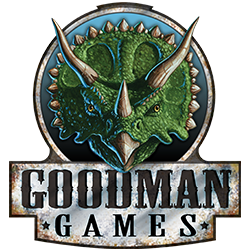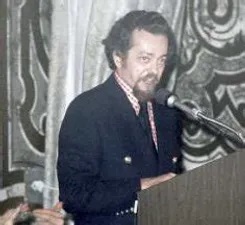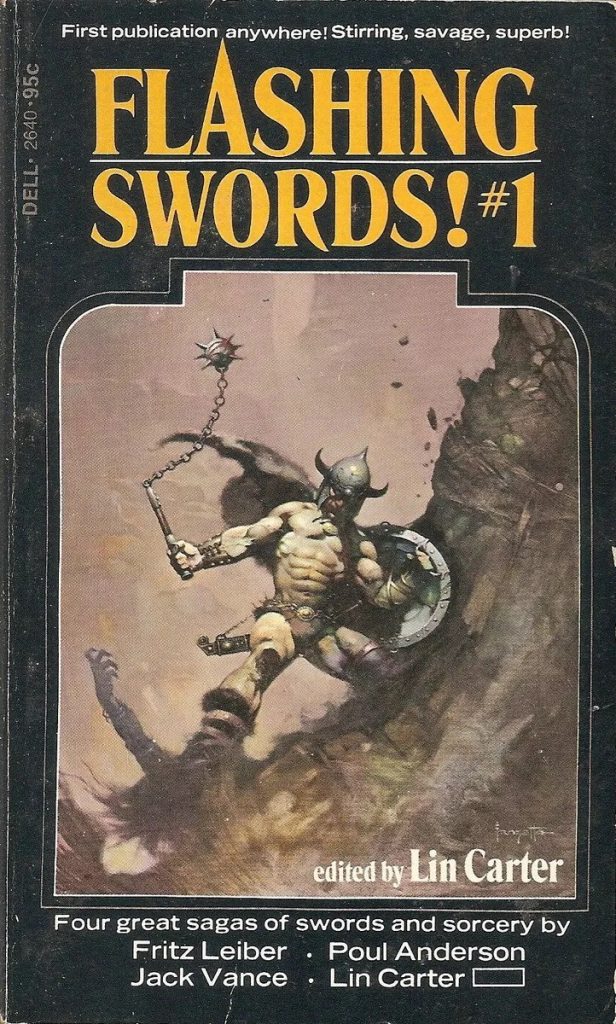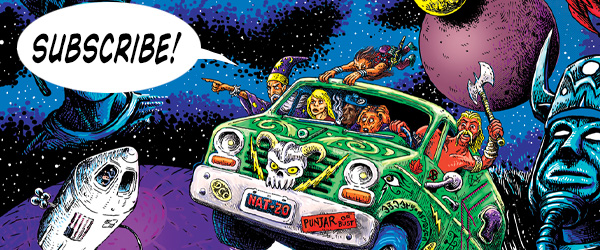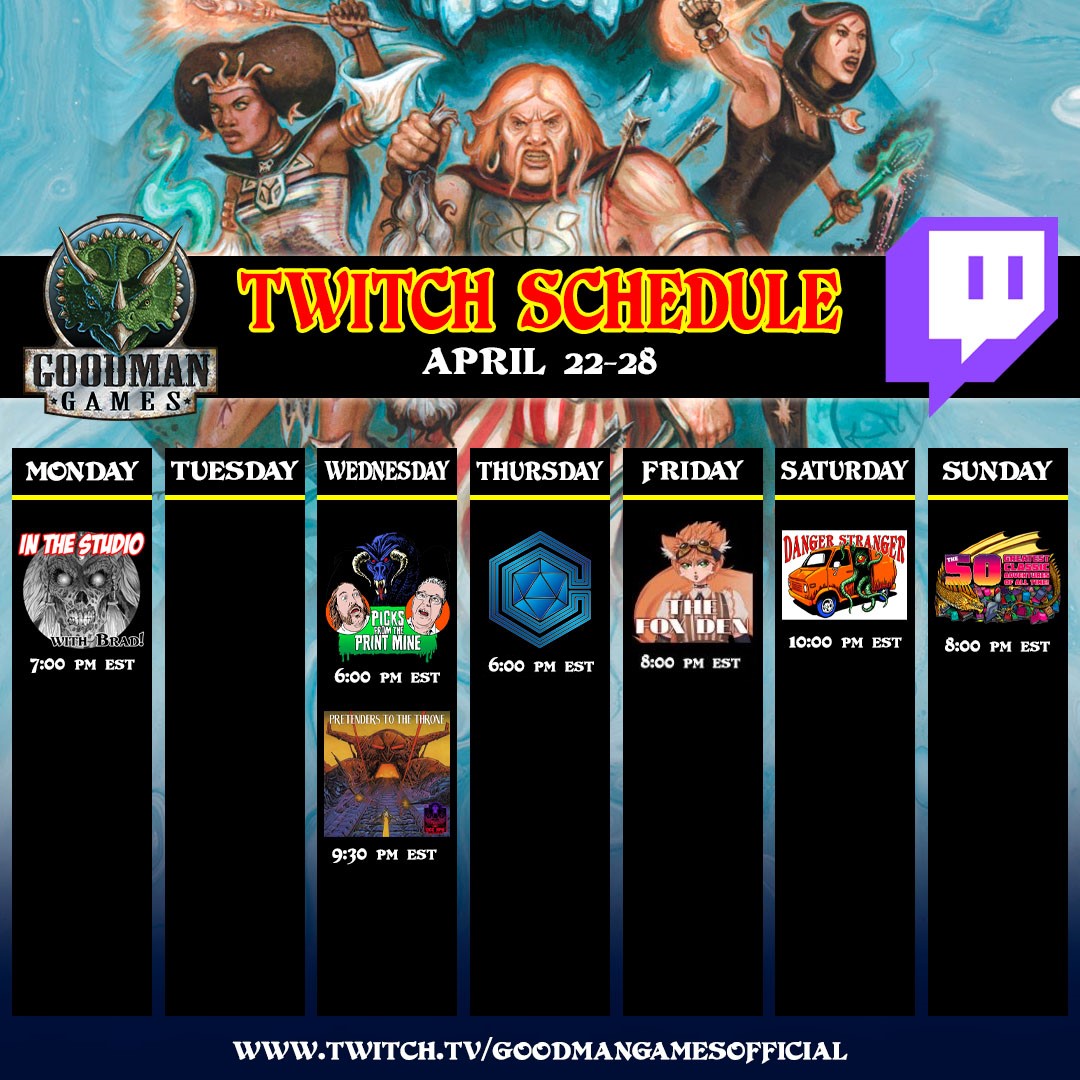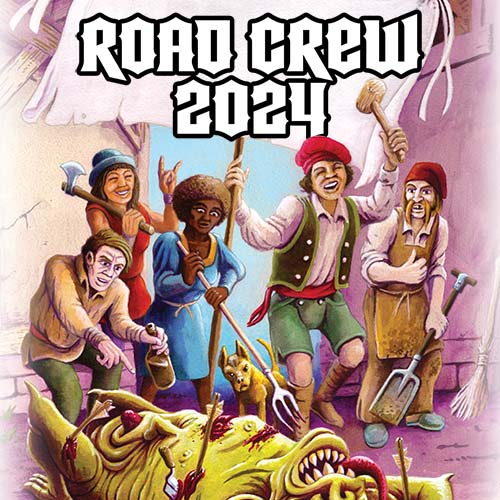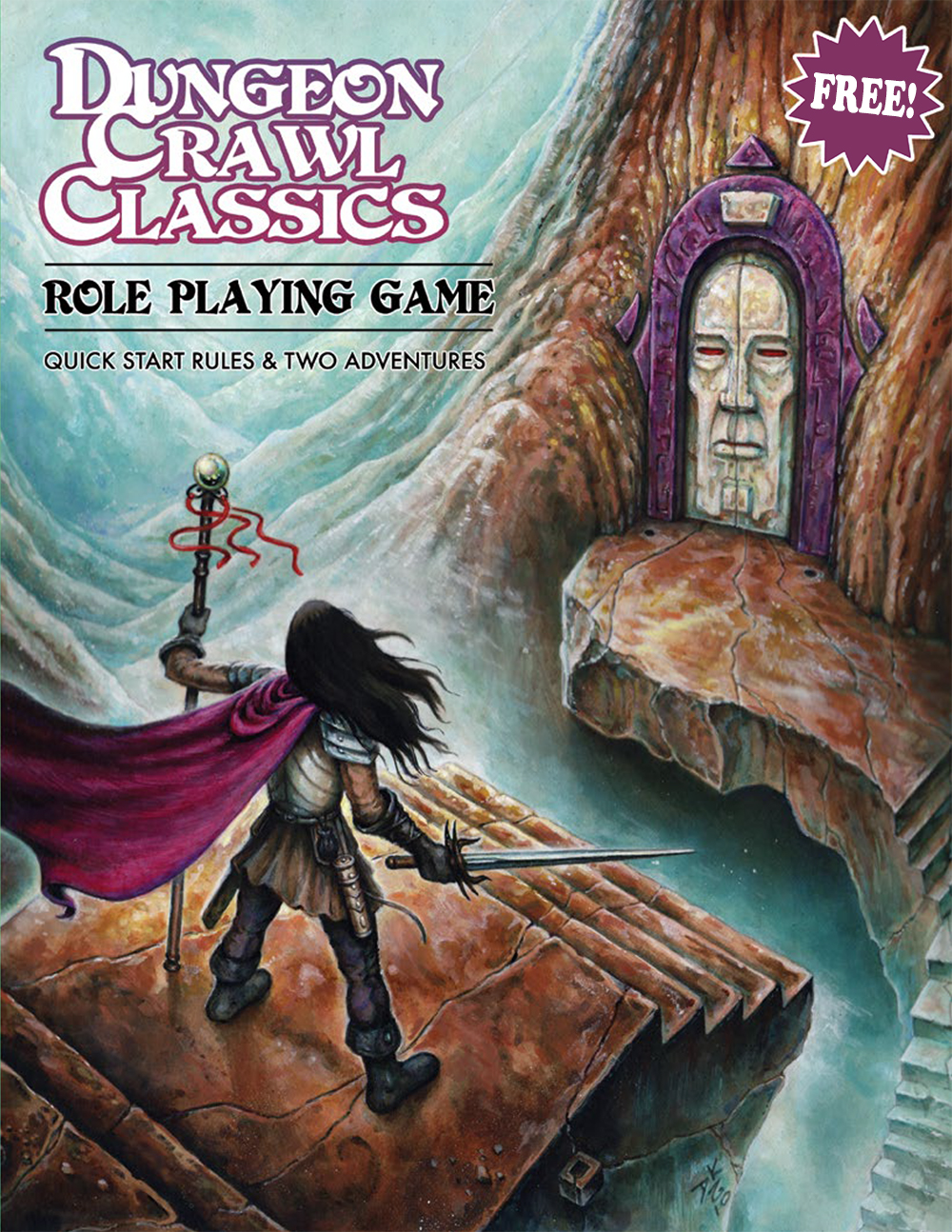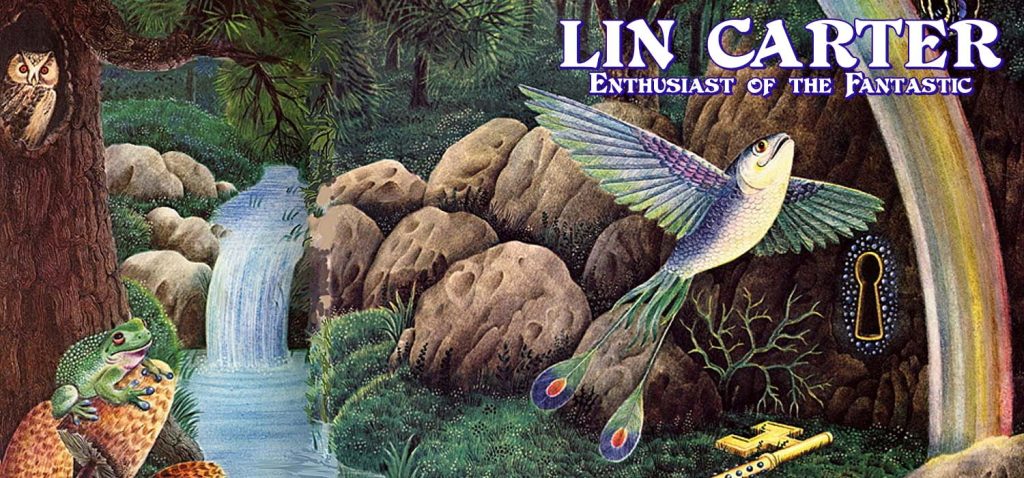
Lin Carter: Enthusiast of the Fantastic
by Brian Murphy
“To read purely for entertainment, for just an echo of the Sirens’ Song, or the faint, wild, heart-stirring music of the Horns of Elfland, is mere juvenile escapism. Or so say the Professors—
“But you and I know different. We do, that is, if you are fond of reading fantasy. If so, then take heart, for such wizardry as sings through the old, heroic legends has not quite been silenced yet.”
— Lin Carter, “The Horns of Elfland”
Born this month 92 years ago, the late Lin Carter (1930-1988) was, perhaps more than anything else, an enthusiast. He heard the Horns of Elfland, and they called to him like few fans of the sacred genre before or since.
Author of Thongor. Creator of worlds. Self-mythologizer. Awards organizer of the Gandalf, for whose statuettes he paid out of his own modest pocket. Founder of the (mostly fictitious) Swordsmen and Sorcerer’s Guild of America, or S.A.G.A. Generous with his praise, both for the fantasy GOATS, and his peers and contemporaries. Editor of the esteemed Ballantine Adult Fantasy Series (BAFS), which breathed new life into old classics and helped codify the fantasy genre. Frequent contributor to Amra. Capable steward of multiple anthologies including Year’s Best Fantasy, Flashing Swords, Kingdoms of Wizardry, Realms of Wizardry, the Zebra Weird Tales paperback revival, and many others.
Carter wrote lots of fiction. Most of it was of mediocre pastiche quality, with a few sparkles amidst the detritus. But what he never lacked was a boundless enthusiasm for it all.
Carter’s summary of the year in fantasy fiction in Year’s Best Fantasy Stories (of which he edited the first six volumes, published from 1975-80) was a welcome bird’s eye view of the day’s happenings in fantasy. Carter covered major events like the death of J.R.R. Tolkien, Ballantine’s cancellation of the BAFS, the end of publisher Lancer, the appearance of small but important specialty publishers like Donald M. Grant, breathy anticipation of The Silmarillion, the landmark appearance of Watership Down, and coverage of the first World Fantasy Convention in Providence, RI. He mourned for what was lost, but was possessed of an irrepressible enthusiasm for the new, and what was coming next.
I love Carter’s illuminating and occasionally gushing introductions to the volumes he edited. Introducing readers to William Morris in the BAFS, Carter makes a compelling case that his The Wood Beyond the World (1895) was the first-ever novel of heroic fantasy ever written in a true secondary world, quipping that “it was the first of all such tales of adventurous wanderings through the marvelous landscapes of worlds which have somehow managed to avoid the wear and tear of ever having actually existed.”
Recalling the earliest days of the pulp magazine Weird Tales in the Zebra paperback revival, Carter wrote, “Through these pages first stalked the grim figures of Solomon Kane, King Kull and Conan the Cimmerian; herein Jules de Grandin, merriest and most inimitable of all the ghost-chasers, pursued evil monsters in many a memorable tale; and here the dark shadows of Cthulhu, Nyarlathotep and Tsathoggua first brooded ominously. For it was in Weird Tales that today’s popular genre of “sword and sorcery” began and the fascinating and eerie “Cthulhu Mythos” was born.”
My favorite has to be his Flashing Swords introductions, where we first learned of the mysterious SAGA. In the introduction to Flashing Swords #1, “Of Swordsmen and Sorcerers,” Carter describes a three-way exchange of correspondence between himself, de Camp, and John Jakes circa 1970, during which Carter hit on the idea of forming a guild, similar to the Mystery Writers of America or the Science Fiction Writers of America. Calling themselves The Swordsmen and Sorcerers’ Guild of America—S.A.G.A. for short—the group banded together and eventually expanded to eight members, a terrific cast that eventually included Jakes, Carter, de Camp, Leiber, Vance, Anderson, Michael Moorcock, and Andre Norton. Says Carter:
“We authors of S&S–all eight of us!–would form a genuine do-nothing guild whose only excuse for existing would be to get together once in a while and hoist a few goblets of the grape in memory of absent friends.”
How can you hate a guy with that kind of passion? SAGA’s members later conferred outrageous titles upon each other–for example, de Camp was honored with the title of Supreme Sadist of the Reptile Men of Yag, while Carter was the Purple Druid of the Glibbering Horde of the Slime Pits of Zugthakya.
Carter strikes me as the sort of dude you want to hang out with at conventions or listen to on podcasts, a critic with a must-read blog you can’t wait to click on when a new post pops up in your RSS feed. Warmer than his sometime friend and frequent collaborator L. Sprague de Camp, with whom he will always be associated. De Camp wrote some very good fiction (though he could never channel the spirit of heroic fantasy, and admitted as much) and was a historian of note. But I remain turned off by his superior airs, and his inability to appreciate sword-and-sorcery material without cynicism and a thin patronizing layer. Carter on the other hand seemed far more the approachable, open-hearted fan. He took the material seriously, but not himself. I’m probably not being fair to de Camp, and I never met Carter, but there you have it.
It must be admitted that Carter comes with baggage. He had an annoying habit of self-aggrandizement, putting himself into Year’s Best anthologies that he himself edited. His evaluations of Robert E. Howard were inconsistent, and he occasionally lapsed into spells of the “it’s all nonsense escapism” criticism approaching that of the stuffy armchair professors he so despised. Many Howard purists will never forgive him for intermingling his own stories with REH’s originals in the Lancer Conan Saga.
But, as for me? I wish we had more Lin Carters. Heroic fantasy/sword-and-sorcery could use a few more of him. We need him now, to champion a genre that has fallen far from the heights it once enjoyed in the 1960s/70s, when he was still with us and leading the charge. But sword-and-sorcery’s pulse, though slow and somewhat tremulous, remains, and it now falls upon others to champion its works and its authors, old and new.
The heart-stirring horns of Elfland … they’re still blowing faintly, Lin. Are you listening, somewhere far beyond?
Brian Murphy is the author of Flame and Crimson: A History of Sword-and-Sorcery (Pulp Hero Press, 2020). Learn more about his life and work on his website, The Silver Key.
The header image is Gervasio Gallardo’s cover for the Ballantine Adult Fantasy edition of ‘Evenor’ by George MacDonald.
